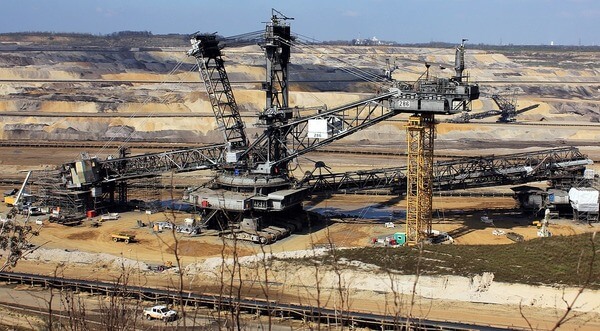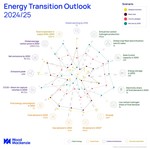News Release from windfair.net
Wind Industry Profile of
Energy Transition Reloaded?
Germany likes to see itself as home of the energy transition. But with its pioneering spirit it's not so far off. First of all, a resentful policy almost brought the domestic solar industry to its knees. Only recently has the market been slowly recovering, and the number of new installations is rising.
This was followed from 2017 onwards by switching to the tendering model in wind industry - with devastating consequences. The number of installations collapsed from a record level to a meagre remainder - last year only 279 onshore wind turbines were installed in Germany. Lengthy approval processes and complaints from local residents also contributed to the slump.
Once again, the problems are homemade, and once again, policy is - partly - to blame. The grand coalition put off the topic of energy transformation for long, repeatedly postponing decisive changes to laws, e.g. on minimum distances or the solar cap. For too long, lobbyists from the powerful automobile industry were considered, repeating like a prayer wheel of the many job losses if more environmental protection was introduced.
But in 2020 everything seems to be different. Already at the end of last year the Germany government was frightened 'out of its own camp' as Ursula von der Leyen, who previously sat in this government herself, announced the 'Green Deal' as new President of the European Commission. All European countries should join in, everyone should do their part, Germany under pressure to act.
Then came COVID-19. All of a sudden there rose an opportunity to completely reshape economic policy, as the EU wanted to stick to the Green Deal.
For several months now, Germany has been drawing more than half of its electricity from renewable sources. Even during the lockdown, the plants reliably produced electricity from wind and sun. A look abroad shows that in other countries it was also mainly renewable energy that prevented blackouts.

The UK is running without coal (Image: Pixabay)
Even in the UK torn apart by COVID-19 and the Brexit, there are positive headlines, as a milestone has been reached: for two months now, no more coal has been burned to generate electricity. Only ten years ago, about 40 percent of the country's electricity came from coal, but now this seems to be over. At the beginning of the British lockdown, operator National Grid took many power plants off the grid as demand for electricity plummeted. Among them were the four remaining coal-fired plants - and they haven't been switched on since.
The UK wants to get out of coal by 2025 anyway. Now might be the right time for it. The country has invested a great deal in its energy transition and has become the world market leader in offshore wind industry.
"So far this year renewables have generated more electricity than fossil fuels and that's never happened before," Dr. Simon Evans of Carbon Brief told the BBC. "With gas also in decline, there's a real chance that renewables will overtake fossil fuels in 2020 as a whole."

Is hydrogen the solution? (Image: Pixabay)
And Germany? The coal phase-out is expected to continue until 2038, even though German power plants are among the dirtiest in Europe.
Yesterday though a national hydrogen strategy was presented, including the claim of global leadership in this field.
Federal Minister of Economics Peter Altmaier: "With the hydrogen strategy we are setting the course for Germany to become world leader in hydrogen technologies. The time is ripe for hydrogen and the necessary technologies. We must therefore now develop and exploit the potential for value creation, employment and climate protection, because hydrogen will be a key raw material for a successful energy transition. As the energy source of the future, it will make an important contribution to achieving climate targets both in Germany and worldwide. Germany will play a pioneering role in this, just as we did 20 years ago with the promotion of renewable energies."
Similar statements were once made about wind and solar power. In the recent past we once again had to learn how quickly the mood can change. So let's hope the best for hydrogen.
- Author:
- Katrin Radtke
- Email:
- press@windfair.net
- Keywords:
- energy transition, Germany, UK, hydrogen, wind, solar, renewable energy, corona, lockdown, economy, recovery, green, coal, electricity









